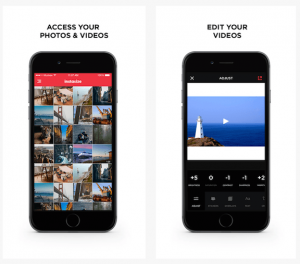As marketing job recruiters with more than a hundred years of experience between us, we’ve seen thousands of candidates come and go through the hiring processes of innumerable clients. Over the years we’ve placed marketing professionals in positions of all levels, from junior roles to CMOs. And while we’ve seen a lot of tremendous successes, we’ve also encountered plenty of candidates that have foundered at a key point in the process and lost a huge opportunity.
We usually get positive response and favorable feedback for the majority of our candidates. After all, we go to great lengths to locate individuals with just the right skillset, experience, and culture fit for our clients.
But sometimes a candidate gets rejected, and one complaint comes to us even for talent that passes through initial applications and reviews with flying colors.
It’s a simple one: when it comes time for the interview, the candidate is unable to articulate their contributions and positive influence throughout their marketing work history.
Why Interviews are Opportunity Killers

The interview is the most common place in the recruitment cycle where even great candidates get stuck. Here, it’s not enough to just be a good marketer–you must also be a consummate professional, a strong conversationalist, and a deft improviser. These are traits that don’t come naturally to many people.
Consider other parts of the process: the resume, the LinkedIn profile, the email correspondences. You have the opportunity to take your time, meticulously check every detail, and make sure everything is just right before sending it onward. If you’re working with a good marketing recruiter, they’ll likely be available to help you shore up any weaknesses and offer advice at any points you’re unsure of.
But in an interview, you’re on your own. It’s up to you to carry on a conversation, communicate professionally, and express your abilities and experience in a compelling manner. That’s a lot to keep up with all at once, with no time to stop and plan out what you want to say and do. Many candidates–even those with excellent backgrounds and pristine resumes–have a weak marketing interview and lose the opportunity.
The Root of Complaints
When a client comes back to us after an interview unimpressed, it’s almost always because the candidate did a poor job of explaining their experience and what made it important.
The resume was fine, full of experience and achievements and skills.
But when asked about their previous work and the contents of their resume, the candidate struggled to talk about it in a meaningful way.
They could list what they’d done–essentially regurgitate their resume. But when it came to explaining the scenario and providing context, the candidate drew a blank. They couldn’t easily recall the KPIs for their projects, or the resources and budget they were given to execute a campaign, or their chain of reasoning when working through a problem.
They couldn’t tell a story. And that’s what the interviewers and marketing job recruiters of today want to hear most.
How to Avoid Marketing Interview Mistakes and Dodge the Complaint

Most marketers spend their days focused on the task in front of them, not talking about what happened in the past. So it’s no surprise that speaking eloquently about your experience in a high-pressure environment wouldn’t come naturally to most of you.
Unfortunately, there’s no secret to avoiding the interviewer complaint and making it through the meeting cleanly. You just have to get better at interviews. And that means, more than anything else, you must come in thoroughly prepared. Properly reviewing your personal history, studying the company you’re applying to and understanding what you bring to the table will put you in the best position to tie it all together and articulate your accomplishments.
How much preparation you should do will depend on the level of the position. But as a rule of thumb, we generally recommend about four hours total of preparation for every hour of interviewing you expect.
Spend one of those hours learning more about the role, the organization, and your interview panel. Examine the organization’s website and digital presence. If it’s a publicly traded company, look at their performance over the last ten years. Look for instances of them in the news. Find advertising materials they’ve distributed online or elsewhere. Take notes of what you think they’re doing well, and where they seem to struggle. Find the LinkedIn profiles of your interviewers and look for connections.
The other three hours should be spent looking back at your past accomplishments, especially those you chose to highlight in your resume. Think about the situation that led up to your opportunity, the people you worked with, the challenges you conquered, and the step-by-step process you used to work toward your goals.
Business & Finance Articles on Business 2 Community(72)
Report Post






